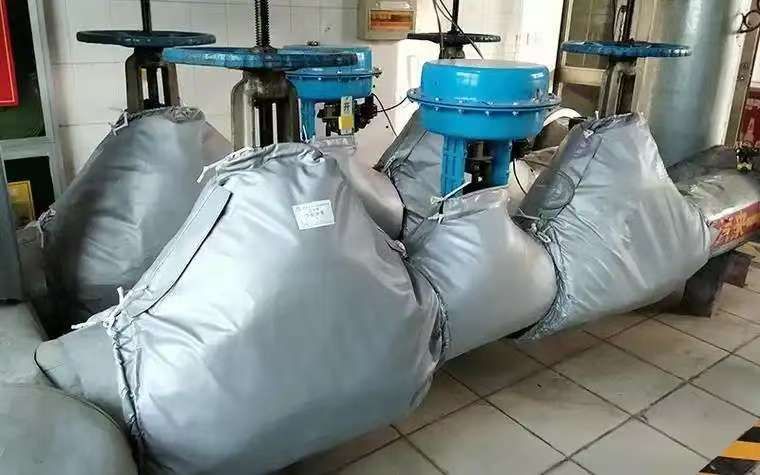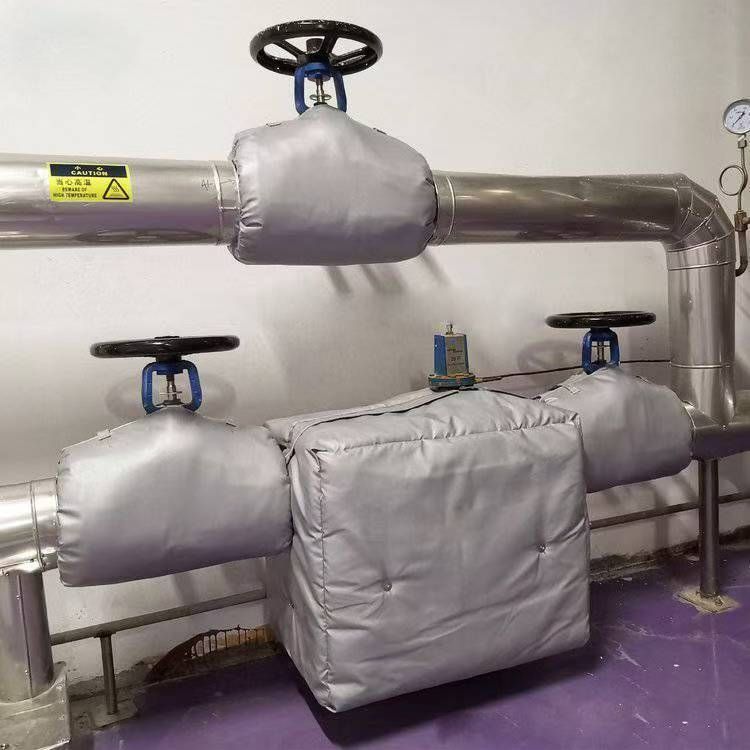Executive Summary: Why Malaysian Factories Need to Deploy Insulation Jackets Now
In the current climate of aggressive climate action and ESG investment, Removable Insulation Jackets/Covers have emerged as a low-cost, high-return solution for achieving Industrial Energy Saving across Malaysia's manufacturing, petrochemical, and food processing sectors. These thermal insulation jackets are specifically designed to cover irregular hot or cold equipment like valves, flanges, and heat exchangers. They not only drastically cut factory energy consumption but also serve as a crucial technical tool for Malaysian enterprises to respond to global ESG (Environmental, Social, and Governance) trends and achieve sustainability goals.
I. Quantifiable Impact of Removable Jackets on Factory Energy Consumption (ROI Focus)
Uninsulated or poorly insulated components (known as "hot spots") in the high-humidity environment of Malaysia lead to significant heat loss. The energy savings provided by insulation jackets immediately translate into a tangible Return on Investment (ROI).
1. Drastic Reduction in Energy Loss (Heat Conservation)
A typical uninsulated DN80 (3-inch) steam valve operating at 0^{\circ}\text$ can cost the facility thousands of Ringgit (RM) annually in wasted steam energy.
-
Benefit Metrics: High-quality removable insulation jackets can reduce the equipment surface temperature from 0^{\circ}\text$ down to below a safe-to-touch temperature of ^{\circ}\text$, achieving over 90% reduction in heat loss.
-
Fuel Savings: Reduced heat loss directly minimizes the need for natural gas or fuel oil consumption in the boiler, immediately lowering the factory's Operating Expenditures (OPEX). This is particularly vital for energy-intensive manufacturing hubs like Johor and Penang.
2. Enhanced Maintenance Efficiency and Minimized Downtime
The greatest advantage of these covers is their removability, facilitated by Velcro or buckle fastenings, allowing rapid access without production interruption.
-
Traditional Pain Point: Traditional hard insulation (like mineral wool) must be destroyed and replaced when equipment is accessed, increasing maintenance cost and time.
-
Insulation Jacket Advantage: Reduces the downtime required for Asset Maintenance Management, ensuring the continuity of production lines. This is critical for high-throughput sectors like semiconductor and electronics manufacturing in Penang and Selangor.
II. Responding to ESG Initiatives: The Necessity for Malaysian Adoption
With the Securities Commission Malaysia and regulatory bodies strongly encouraging ESG reporting and practices, the need for insulation jackets has escalated from mere "cost savings" to "ESG Compliance and Competitiveness."
1. Environmental (E): Addressing Climate Change and Resource Management
-
Direct Carbon Footprint Reduction (Decarbonization): Lower energy consumption directly reduces the factory's Greenhouse Gas (GHG) emissions. For Malaysian export-oriented manufacturers facing international supply chain scrutiny, this is a verifiable measure for reducing Scope 1 and Scope 2 emissions.
-
Climate Resilience: Improving energy efficiency supports Malaysia's national climate goals and makes corporate operations more resilient to climate change impacts.
2. Social (S): Elevating Occupational Health and Safety Standards
-
Elimination of Burn Hazards: By controlling hot surface temperatures below safe limits (typically $<60^{\circ}\text$), the risk of severe burns is eliminated. This directly complies with DOSH (Department of Occupational Safety and Health) requirements.
-
Lower Accident Rates: Fewer burn accidents improve the working environment and employee morale, a crucial component of the "Human Capital" and "Safety Culture" metrics in ESG reporting.
3. Governance (G): Efficient Asset Management and Transparency
-
Responsible Asset Stewardship: Protecting expensive, sensitive equipment from environmental factors and prolonging its service life demonstrates a commitment to efficient capital management.
-
Quantifiable ESG Data: The actual energy saved and carbon emissions avoided can be used as transparent, auditable ESG performance data to attract sustainable investment and satisfy international clients' "green procurement" standards.
Conclusion: Investing in Jackets for Multi-Layered Returns in Malaysia
Removable thermal insulation jackets are a powerful confluence of Lean Manufacturing and Green Transition strategies for Malaysian industry. They not only ensure a healthier financial statement (high ROI) but also help enterprises meet the increasingly stringent requirements of ESG due diligence and international market standards. For all factories located in Kuala Lumpur, Selangor, Johor, or Penang, deploying high-quality Removable Thermal Insulation Jackets is a strategic imperative to boost competitiveness and sustainability.















